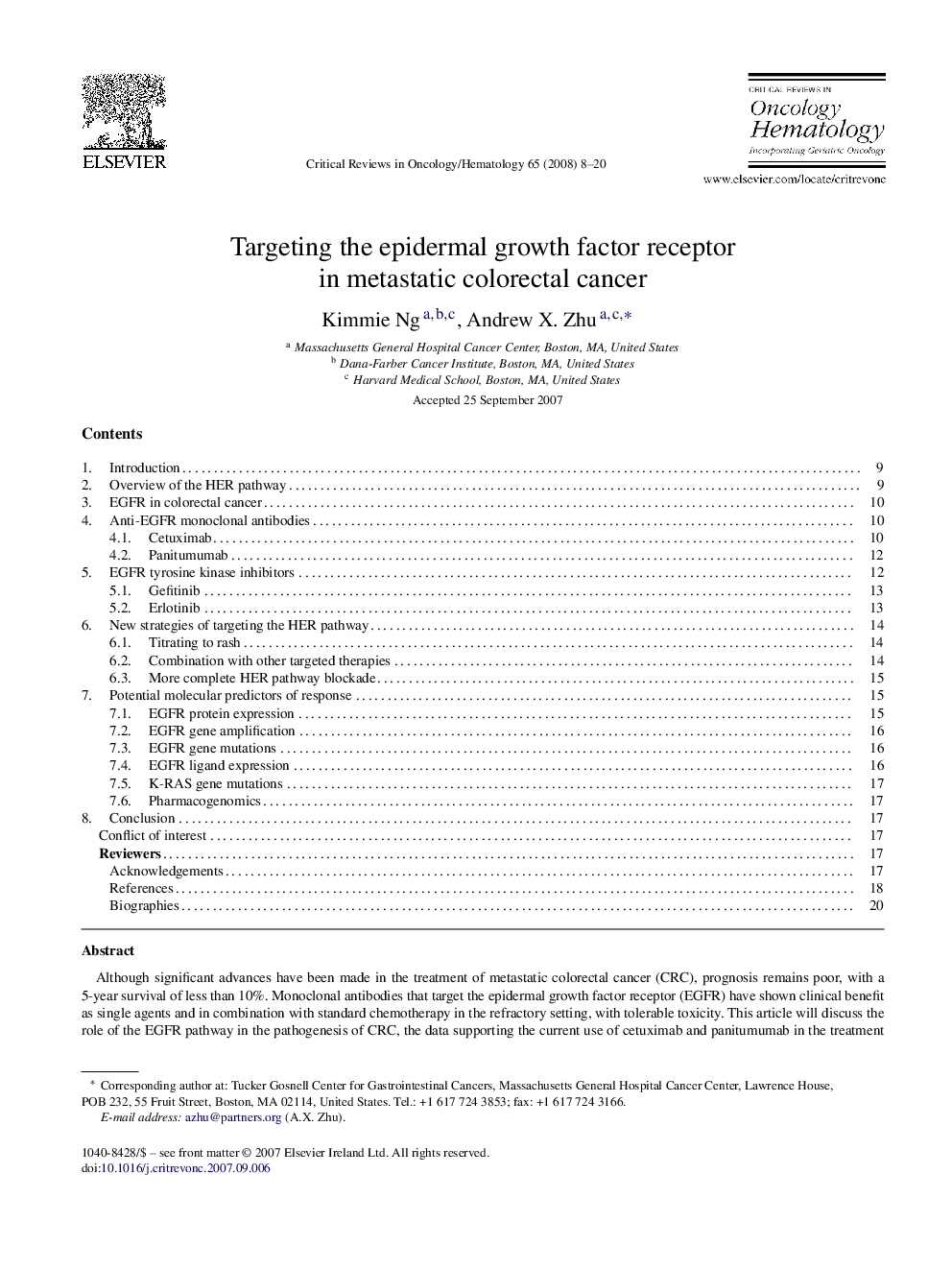| Article ID | Journal | Published Year | Pages | File Type |
|---|---|---|---|---|
| 3329939 | Critical Reviews in Oncology/Hematology | 2008 | 13 Pages |
Although significant advances have been made in the treatment of metastatic colorectal cancer (CRC), prognosis remains poor, with a 5-year survival of less than 10%. Monoclonal antibodies that target the epidermal growth factor receptor (EGFR) have shown clinical benefit as single agents and in combination with standard chemotherapy in the refractory setting, with tolerable toxicity. This article will discuss the role of the EGFR pathway in the pathogenesis of CRC, the data supporting the current use of cetuximab and panitumumab in the treatment of CRC, and clinical trials of EGFR tyrosine kinase inhibitors in CRC. Novel strategies of targeting the EGFR pathway to improve efficacy, as well as ongoing research in identifying molecular predictors of response to anti-EGFR agents, will also be reviewed.
